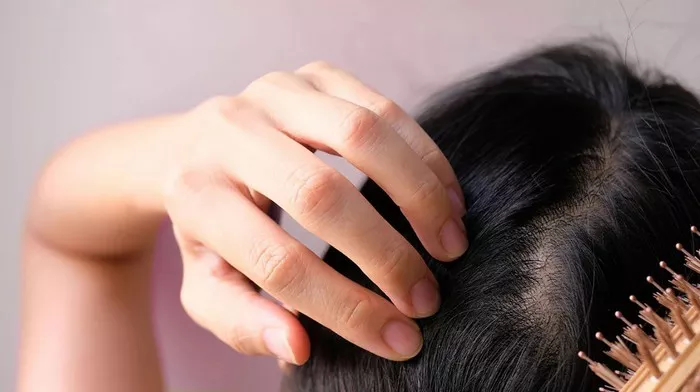They say that healthy hair is a reflection of overall wellness, and your diet plays a crucial role in nourishing your locks. If you’ve been longing for luscious, vibrant hair, it’s time to pay attention to what you’re putting on your plate. In this comprehensive guide, we’ll explore the relationship between nutrition and hair growth, and we’ll provide you with insights into creating a diet that supports the growth and vitality of your hair.
What is the process of hair growth?
Hair growth occurs in a cyclical process with three main phases: anagen (growth), catagen (transitional), and telogen (resting). In the anagen phase, hair follicles actively grow, with cells dividing rapidly and hair lengthening. The catagen phase is a transitional period when hair growth slows and follicles shrink. Finally, during the telogen phase, hair rests and eventually sheds to make way for new hair. Around 85-90% of hair is in the anagen phase at any given time, while 10-15% is in telogen. The cycle varies by individual and is influenced by genetics, hormones, and overall health.
Understanding the Connection Between Nutrition and Hair Growth
Nutrition plays a vital role in hair growth. Essential nutrients like protein, biotin, vitamins (A, C, D, E), and minerals (iron, zinc) are crucial for healthy hair follicles. Protein provides the building blocks for hair structure, while biotin aids in keratin production. Vitamins and minerals support scalp health and blood circulation, promoting nutrient delivery to hair follicles. Omega-3 fatty acids combat inflammation and contribute to scalp health. Deficiencies in these nutrients can lead to hair thinning and loss. A balanced diet rich in these elements nourishes hair follicles, fosters optimal growth, and minimizes the risk of hair-related issues.
Designing a Diet for Hair Growth
Designing a diet to promote hair growth involves including nutrient-rich foods that support hair health. Here’s a balanced diet plan:
1. Lean Protein Sources
Incorporate lean protein sources into your meals, such as grilled chicken, turkey, fish, tofu, and legumes. Aim for a balanced distribution of protein throughout the day.
2. Colorful Fruits and Vegetables
Load up on a variety of fruits and vegetables to ensure you’re getting a spectrum of vitamins and minerals. Include leafy greens, carrots, sweet potatoes, berries, and citrus fruits.
3. Whole Grains
Opt for whole grains like quinoa, brown rice, whole wheat bread, and oats. These grains provide essential nutrients and fiber that support overall health and hair growth.
4. Healthy Fats
Incorporate sources of healthy fats like avocados, nuts, seeds, and olive oil. These fats contribute to scalp health and support the absorption of fat-soluble vitamins.
See Also: The Benefits of Tea for Hair Loss: Things You Need To Know
Precautions for Maintaining Healthy Hair
To maintain healthy hair, it’s essential to adopt a consistent hair care routine and follow these precautions. First, use a gentle shampoo and conditioner suitable for your hair type to prevent stripping natural oils. Avoid excessive heat styling, as high temperatures can damage hair proteins and lead to breakage; use heat protectants when necessary. Minimize brushing wet hair, as it’s more prone to damage, and opt for a wide-toothed comb. Regularly trim split ends to prevent them from traveling up the hair shaft. Protect your hair from UV rays by wearing a hat or using UV-protectant products. Use sulfate-free products to prevent dryness and irritation. Maintain a balanced diet rich in protein, vitamins, and minerals for strong hair growth. Lastly, reduce stress through relaxation techniques, as stress can contribute to hair problems. By incorporating these precautions into your routine, you can promote and maintain healthier, more vibrant hair.
Conclusion
Achieving and maintaining healthy hair growth involves more than just external treatments – it starts with nourishing your body from within. By incorporating a balanced and nutrient-rich diet that includes lean proteins, colorful fruits and vegetables, whole grains, healthy fats, and adequate hydration, you can support the growth, strength, and vitality of your hair. Remember that patience is key, as it may take time to notice the full benefits of your improved nutritional habits. With a holistic approach to your well-being, you’ll be well on your way to enjoying the beauty of vibrant, healthy hair.


